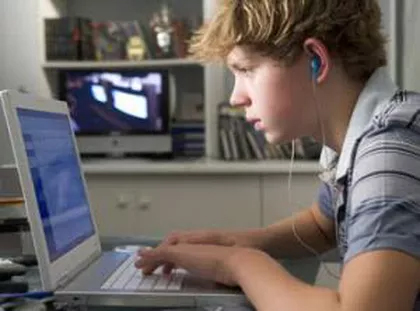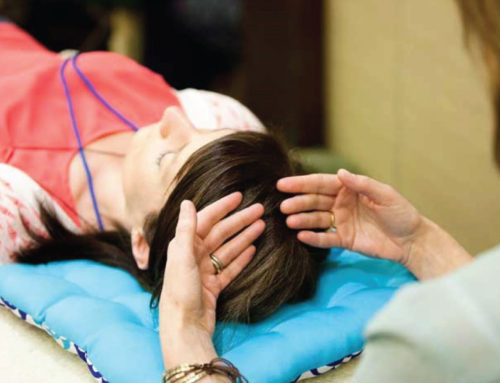Digital Detox and Balance for Children
by Geraldine Zadkiel
We live in a digital world that is always changing. Households often have several devices that they are ‘plugged into’ every day.
There is a lot of talk about digital overuse and can it lead to addiction for children and adults.
As a Kinesiologist I work with children and adults with the focus of emotional wellbeing. Digital overuse is one aspect that often requires attention and contributes to disconnection, sleep issues, emotional outbursts and unexplained anxieties.
It’s important to understand not all uses of technology are equal. Digital Overuse is a very broad topic as there are two aspects that need to be addressed.
The first issue is actual physical time spend on devices. This can easily be addressed with a few simple changes. Children need to use devices for school projects, assignments and education programs and we all use devices to watch movies and TV Programs. Same as adults are using devices all day at work, paying bills and organising life commitments, researching the internet amongst other things.
These can be easily managed with some education in time management and creating healthy boundaries and time restrictions.
The second issue is content and the context in how the devices are being used for gaming and social media. The more hyper-arousing and stimulating a screen experience is, the more addictive potential it has.
Violent video games are the most dopamine-activating and the reward interval of certain games plays into how compulsive and addictive they are. Many games use a “variable reward ratio”, the same as the pokie machines, which have the most addicting reward schedule.
Digital addiction looks like any other addiction. Take notice when you or your child continues to engage in a behaviour (in this case screen usage) that negatively impacts normal aspects of life. In the case of children’s, look for signs where school work begins to suffer, relationships become disconnected, hostile communication, behavioural changes or you notice their health and hygiene also begins to decline as the addiction gets worse.
Perhaps you find them lying about, or hiding their screen usage. You will notice them getting angry when you ask them to turn off their device, their preferred topic of conversation is about gaming. You will also notice unexplained emotional outbursts and not sleeping at night.
Digital overload has an cause and effect reaction creating Emotional and physical issues. In my profession I see more and more clients experiencing anger outbursts and violent behaviours, withdrawal and disconnection from family, unexplained anxiety and fears, depression, feeling separate, insomnia and obsession about particular games, lack of attention when talking to them.
One of the questions I get asked is my child needs to use their device for homework and projects, how can I create balance and what is considered normal device use?
Each family is different as to what they feel is right for their children. I recommend that the focus is on communication. Sit down and discuss this issue thoroughly (away from your children) and come up with a set of guidelines that you feel happy with, then sit down as a family and discuss how they feel about the changes, let everyone have their say.
Remembering that your aim as a parent is to assist you child’s mind to develop as fully and completely as it can. When required for educational purposes the use of devices is beneficial.
When the majority of use is purely for entertainment and social connection, I recommend exploring other options like outdoor activities. If you choose using devices for this reason and it is right for you and your family, then some clear boundaries are in place to ensure safety for your child.
This includes understanding the type of games and social media they are using. Removing all violent video games that have addictive features.
One of the challenges we are facing in our digital tech world is one of addiction to gaming and other social activities online. “Tony Robins states – if an activity meets more than 3 basic human needs it is an addiction”. This means that the issue is less about the digital devices than it is about the “context and content” in which the device is being used.
Take a moment to determine what “need” is being fulfilled through the process of gaming and social online activities.
Often gaming and social media is your child’s only connection to their friends outside of school, it provides attention and interaction (good and bad). This connection and attention is consistent and available all the time. All of which is translated to your child receiving the “need” of connection and acceptance through their devices.
Therefore if you are to address this issue, as parents of addiction, you must first understand the need that is being met through gaming and social media. You will need to explore alternative ways to meet this need, as well as creating some physical time limits on the use of devices outside an educational setting.
For example – The need that is being met is connection and attention. Parents are often very busy, allowing children to play digital video games without fully understanding the implications. This is understandable in our busy changing world.
Now is time for change. As you acknowledge that the attention children are missing out on through a busy life, is the attention they are seeking elsewhere (through gaming)
If you think your child is addicted or becoming addicted to gaming or social media then “its time” to open up the conversation, engage them in the conversation and choices being made, provide solutions so that their “need” for connection, attention and acceptance are still being met.
This situation requires more compassion and awareness of their connection to their “needs” being met through gaming and social media and providing an alternative to ensure their needs are still being met.
Just limiting time and removing the device will not offer the results you are looking for.
Therefore, if their only interaction with friends outside of school is through gaming or social media. Create more face time opportunities or other ways for them to connect with friends
- organise outdoor activities and invite one of their friends to join you on your adventure
- allow your child to phone their friends so they can speak to each other (use technology to your advantage)
- allocate time in your diary for “one one one time” with your children
Some simple and effective strategies for parents to implement are :
STAY CALM….. its going to be ok
Create a Phone Charging Station In Your Home.
All phones go on the Phones Charging Station at certain times during the day.
– at dinner time
– one hour before bed and not taken of charging station til after breakfast. No devices in the bedroom at night.
Placing all devices on charging stations takes the focus off “time restrictions” and it’s consistent for all people in the home creating a new routine for adults and children. “Time restrictions” imply that they have done something wrong, this is not the case.
Creating boundaries and rules for the entire family is a way to ensure that the reason for change is for everyone in the family to connect more. The focus is on creating balance and face to face connection.
Weekends a somewhat different approach and this is where time restriction can be in place. You will need to communicate as a family what the boundaries are and that on the weekends its different.
On weekends create some excitement about the changes being made you can explore:
- organising some outdoor activities (so many things to explore, hiking, camping, beach….)
- Discuss some hobbies that each person enjoys and incorporate them into your weekend activities.
- Ask each other “What do You Need” and use this information to decide your day. Be creative in your approach, find solutions that meets everyones needs.
- Provide options and allow your children to choose, this empowers them to be involved in finding solutions.
It’s so importation that the changes we (adults) propose to children are also adhered to by the adults in the home. If you would like to see effective change you must lead the way, you must be the first one to put your phone on the charging station before dinner, before bed and adhere to other agreed solutions that you choose as a family.
There are alternative options if you think your child is behaving differently or becoming addicted to gaming.
Kinesiology is an effective option to explore. Kinesiology uses chiropractic muscle testing to connect with the subconscious to identify physical and emotional patterns causing disharmony. Addiction creates a physical and emotional response, we work together to clear the physical and emotional triggers, providing effective tools to empower your child to manage intense emotions and to focus on being a child and having fun (outside of digital devices). Kinesiology is safe for children.
Here is a extract from a dad happy to see the changes after his son’s 1 Kinesiology Session.
Thank you so much. I felt a real sense of calmness in my son when he returned home after attending your session. It was beautiful to see him back to his old self. He has such a beautiful and caring energy and it was lovely to feel that return in him. We will happily work with the boundaries and in fact we were even discussing it this morning.
If you would like to make an appointment with Geraldine, please use the booking button below or call her direct on 0418 336 482






